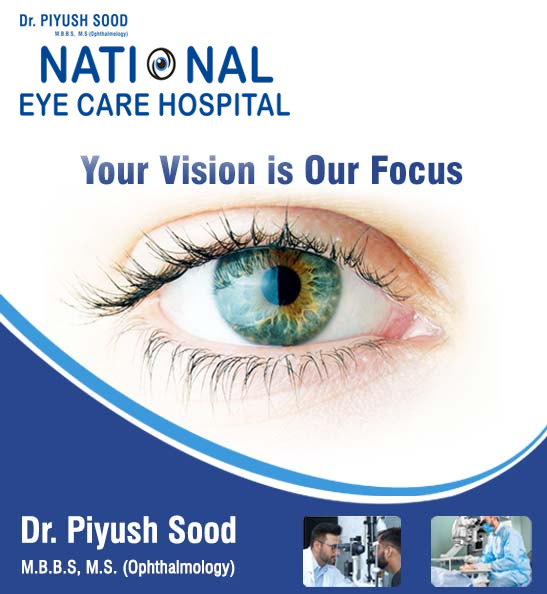Eye Doctors in Andalusia: Relied On Experts for Vision Health
Eye Doctors in Andalusia: Relied On Experts for Vision Health
Blog Article
Is Refractive Surgical Procedure Right for You? Factors to Think About for Better Eyecare
In the realm of eye care, the choice to undergo refractive surgery is a substantial one that requires thoughtful factor to consider. From the ins and outs of one's eye health to the intricacies of individual assumptions and everyday practices, each element holds importance in the wider landscape of refractive surgical treatment candidateship.
Eye Health And Wellness Assessment
When thinking about refractive surgical procedure, a thorough eye health and wellness evaluation is critical to evaluate the suitability of the treatment for each and every person. andalusia pediatrics. This evaluation includes a collection of assessments and tests conducted by an eye care specialist to determine the general health of the eyes, the visibility of any type of hidden conditions, and the stability of the refractive mistake
Throughout the analysis, various elements are thought about, such as the person's case history, existing eye prescription, corneal density, student size, and tear film quality. These evaluations aid to recognize any type of contraindications to refractive surgical treatment, such as corneal abnormalities, cataracts, or neglected eye infections. Additionally, the analysis helps to take care of individual assumptions pertaining to the possible results of the surgery based upon their unique eye attributes.
Eventually, the eye health and wellness analysis is vital in ensuring the safety and efficiency of refractive surgical treatment, as it gives beneficial understandings into the individual's eye health condition and assists figure out one of the most ideal therapy alternatives for achieving ideal visual end results. (eye doctors in andalusia)
Way Of Life Evaluation
An extensive way of life evaluation is important in figuring out the suitability of refractive surgical treatment for an individual's visual correction needs. Lifestyle factors such as line of work, leisure activities, and day-to-day activities play an important function in the decision-making process regarding refractive surgery. People with careers that include a high degree of physical task or exposure to environmental components may have different aesthetic demands compared to those with less active desk work. Recognizing exactly how an individual's way of life may influence their vision post-surgery is crucial for handling expectations and making sure optimal end results.
Additionally, lifestyle routines such as sports engagement, outside activities, or perhaps skin care routines can influence the recovery process and total success of refractive surgical treatment. People who engage in contact sporting activities may require to take additional precautions to shield their eyes during the healing duration. In addition, individuals with considerable sunlight exposure may call for extra post-operative treatment to avoid issues. By carrying out a detailed lifestyle evaluation, eye care experts can customize their suggestions and therapy strategies to meet the one-of-a-kind needs of each individual, inevitably bring about boosted visual results and satisfaction.
Assumption Alignment

Setting realistic expectations involves complete pre-operative conversations in between the ophthalmologist and the person. The cosmetic surgeon needs to transparently connect the possible risks, advantages, and limitations of the treatment (cardiologist andalusia). Clients require to understand that while several people achieve 20/20 vision or better complying with refractive surgery, some may still need glasses for specific activities like analysis or driving at night. Taking care of these expectations aids avoid frustration and discontentment post-surgery, resulting in an extra positive general experience for the person.
Risk Evaluation

Variables that might boost the threat of problems consist of age, certain clinical conditions like autoimmune diseases, unpredictable vision prescription, slim corneas, and unrealistic client expectations. In addition, picking a knowledgeable and competent cosmetic surgeon, following pre and post-operative care instructions diligently, and divulging any kind of pertinent clinical history can aid mitigate risks.
To minimize the chance of problems, ophthalmologists carry out comprehensive pre-operative analyses to recognize any contraindications to surgical procedure. They additionally discuss the potential dangers and advantages with individuals throughout the appointment process. By engaging in open interaction and shared Check Out Your URL decision-making, both the eye doctor and the patient can interact to determine if refractive surgery is the ideal option based upon specific risk accounts and preferred end results.
Consultation Importance
Taking into consideration the vital role of informed decision-making in evaluating dangers and potential difficulties additional hints in refractive surgical procedure, the assessment procedure holds significant significance in assisting clients in the direction of optimal outcomes. During the appointment, the eye doctor assesses the client's eye health and wellness, refractive mistakes, and total suitability for surgery. This first assessment is crucial in determining one of the most appropriate procedure for each individual, considering variables such as corneal thickness, student dimension, and existing eye problems.
Furthermore, the appointment works as a possibility for clients to discuss their expectations, issues, and any kind of questions they may have regarding the surgical procedure. Clear interaction in between the individual and the specialist is necessary to ensure practical assumptions and a comprehensive understanding of the prospective dangers and benefits included.
Additionally, the examination enables the surgeon to discuss the various surgical alternatives readily available, their particular outcomes, and the post-operative care needed. This extensive discussion empowers people to make educated decisions concerning their eye care, causing far better complete satisfaction and end results post-surgery.
Conclusion
To conclude, people taking into consideration refractive surgery must undertake a thorough eye health evaluation, examine their way of living behaviors, align their expectations with potential outcomes, evaluate the connected threats, and prioritize examinations with eye treatment specialists. These variables play a crucial function in establishing the viability of refractive surgical procedure for every individual, ensuring ideal outcomes and complete satisfaction with the treatment.
Clients taking into consideration refractive surgery often have high assumptions pertaining to the end results, expecting ideal vision without the requirement for glasses or call lenses. While refractive surgical procedure can greatly boost vision and reduce dependence on visual aids, it is essential for individuals to comprehend that results might vary based on individual factors such as the level of refractive mistake, corneal density, and total eye wellness.
By engaging in open communication and shared decision-making, both the client and the ophthalmologist can work with each other to identify if refractive surgical procedure is the right option based on specific danger accounts and desired outcomes.
Taking into consideration the critical duty of notified decision-making go now in evaluating threats and possible problems in refractive surgery, the assessment process holds significant value in assisting people towards optimal end results. Throughout the examination, the ophthalmologist examines the patient's eye health and wellness, refractive mistakes, and total viability for surgery.
Report this page